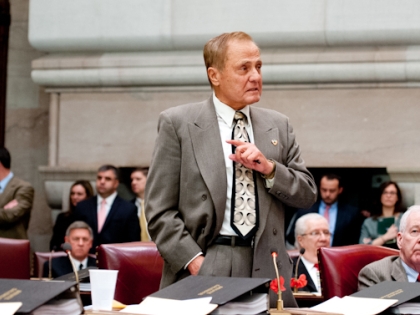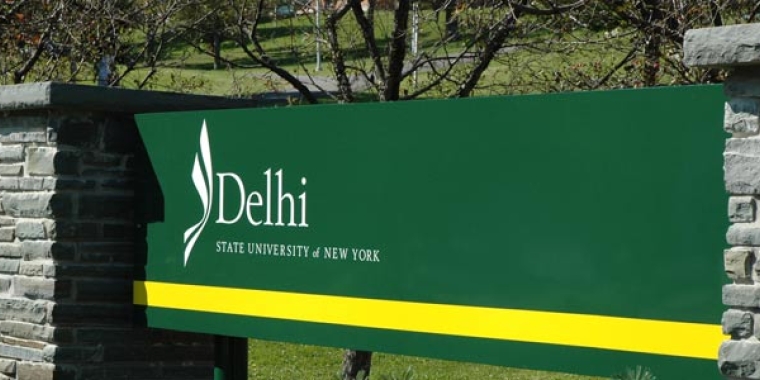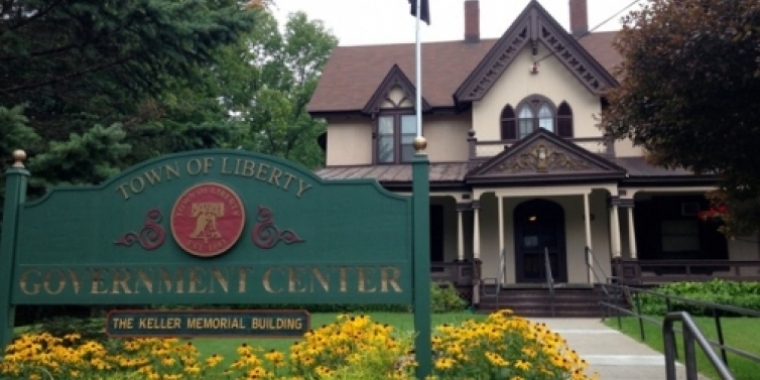
Testimony Of John J. Bonacic On Nyri's Power Line Proposal
Thank you for having this hearing here in Sullivan County. My name is John Bonacic and I represent the 42nd State Senate District which includes all or parts of Delaware, Sullivan, Ulster, and Orange Counties. I welcome the Public Service Commission to Sullivan County.
Decades ago, Marcy South came to Town. Back then, I remember people claiming the lines would cut energy costs. Decades later, energy costs are higher than ever.
Twenty years later, NYRI, which I call the son of Marcy South is very real, and is an even greater concern. NYRI is bad public policy for multiple reasons and, as a result, the Public Service Commission should deny the application.
First, some procedural and factual history.
WHO IS NYRI?
NYRI was proposed in the Spring of 2006. They initially would not hold a public informational meeting in the hamlet of Callicoon – one of the most impacted areas in the NYRI proposal. My office served a letter upon NYRI at their Albany Office demanding a meeting and that is when my concerns as to who this company is really started. My staff person went to the doorman and asked how she could get a letter to NYRI. The doorman replied that nobody’s ever in their office but took my staff there anyway. The lights were off, the office was essentially barren, the Albany address NYRI gave, at least then, was a sham.
So who is NYRI? What is their commitment to our region?
At a Senate public hearing, NYRI representatives could not identify who paid them. Those same proponents put up a website showing smiling faces and American flags . . . and then they said they might use State law to take property if we don’t sell to them.
Thereafter, it became apparent that NYRI is financed in large part by foreign interests. One might say “but they are Canadian interests”. Canada might be our neighbor but they are still foreign interests. Having foreign interests controlling more of our power supply makes me very uncomfortable. Energy is a key element of national security and should be as domestic as possible.
STATE ACTIONS
NYRI’s application was rejected as incomplete on multiple occasions by the Public Service Commission. Some will say that is meaningless. I disagree. The quality of an application is a demonstration of the applicant’s commitment to getting it right. When the Department has had to repeatedly tell NYRI that their application was wrong, my constituents and I are correct to question NYRI’s willingness to spend the resources necessary to do the job right. Thanks to a rigorous review process by the State, we have insisted NYRI take the time to do it right. Construction of power lines is not something that should be left to people who do not know how to submit a complete application.
Beyond the application’s rejection, the State Senate has had to actually direct money to our communities to make sure NYRI’s application is correct and, as the Commission has or will see here, NYRI’s application is still deficient and the project should be rejected. To date, $1 million has been sent to the counties which are impacted by NYRI through the State Senate just to make sure our counties’ positions are heard.
Furthermore, the State has amended its eminent domain laws. In a law I sponsored, the State said, companies like NYRI, may not use eminent domain to take people’s land. The vote in support of that legislation was overwhelming in both the Senate and Assembly.
The Governor signed my legislation into law. NYRI sued to declare the law unconstitutional. NYRI lost.
In short, the State of New York has done everything we reasonably can do to make it clear that a project like NYRI is simply not in New York State’s best interests.
THE FEDERAL GOVERNMENT HAS
BEEN NYRI’S ENABLERS
The Federal Government on the other hand, has been NYRI’s enablers.
It is Federal law, after all, which effectively gave birth to NYRI. The Federal Energy Policy Act of 2005, was opposed by our two United States Senators – Senator Schumer and Senator Clinton. Senator McCain also voted against the bill – Senator Obama, in case anyone cares, voted for it. This act enabled the Federal Government to usurp State authority for the siting of power lines.
NYRI, even as an entirely intra-state power line, claims to be able to benefit the area by this Federal taking of State’s rights.
Our Federal officials, notwithstanding their opposition to the Energy Act, have not acted legislatively to stop it. They have held a lot of press conferences, but no money for our communities to oppose NYRI. There have been lots of legislative proposals in Washington, but no repeal of the Energy Act.
In Congress, there has been talk, talk, talk without results when it comes to stopping NYRI. For example:
February, 2007 – a Congressman says he’ll introduce a bill to give the NYRI decision back to the States. The bill fails. Talk against NYRI by Washington politicians, but victory for NYRI.
April, 2007 – after lots of noise from Federal officials, the Federal government grants the power corridor designation NYRI wanted. Talk against NYRI by Washington politicians, but victory for NYRI.
June, 2007 – a Congressman says he’ll introduce a bill to stall the power corridor designation. The bill fails. Talk against NYRI by Washington politicians, but victory for NYRI.
June, 2007 – a Congressman again claims he will try and stall the power corridor from moving forward and even schedules a public hearing back home to talk about it. The effort fails. Talk against NYRI by Washington politicians, but victory for NYRI.
July, 2007 – now one of our U.S. Senators decides he’ll chime in and introduce a bill to block NYRI. We never hear if his bill makes it even for a vote. Talk against NYRI by Washington politicians, but victory for NYRI.
March, 2008 – the Federal government refuses to reconsider the energy corridor they granted NYRI even after Attorney General Cuomo asked them to. Again, the Federal government ignores us. Talk against NYRI by Washington politicians, but victory for NYRI.
April, 2008 – the same U.S. Senator who was going to sponsor a bill to stop NYRI which never went anyplace, now accuses NYRI of making a ‘greedy money grab’ by seeking Federal authority for reimbursement for the cost of the power lines. Of course just months later, the Federal government again ignored that Senator and gave NYRI exactly what they wanted. Talk against NYRI by Washington politicians, but victory for NYRI.
IT’S UP TO YOU, NEW YORK
At the risk of offending Frank Sinatra, it’s up to you New York. Our Federal officials created NYRI by the passage of the Energy Act. They talked the talk against NYRI, but got no results.
Given that our Federal officials have been full of rhetoric but empty on results, it falls to us – New York State residents, Departments, and Legislators - to make it clear why NYRI is improper. Let me give you a few reasons:
1. NYRI is not necessary. The New York State Independent Systems Operator (NYISO), in its 2007 Comprehensive Reliability Plan has determined that New York has reliable electric power for many years to come. We do not need these power lines now. Moreover, given the current economic climate, there is no reason to believe the power will be needed in the foreseeable future. We have to bring our economy back to where it was before we even think about expanding.
2. NYRI hampers economic development in upstate New York. Power costs are a real concern to business and residents. Raising electric rates upstate, where the economy is weak, to lower them downstate, where the economy is not as weak, is unacceptable. While clearly Congress is NYRI’s enabler, we in State government do not need to facilitate NYRI’s plan to raise upstate’s electric rates and blight our land.
3. NYRI is not permitted under Article 14, Section 3 of our State Constitution. Since NYRI proposes to utilize State lands in forest preserve counties, the power lines are not permissible. No State lands may be leased or sold or taken for private profit under our Constitution when those lands are in any county which is part of the forest preserve. Delaware and Sullivan Counties are part of the Catskill Forest preserve.
4. NYRI encourages energy consumption instead of energy conservation. We all talk about energy conservation, but building new power lines does nothing but encourage energy consumption.
5. There are alternatives to NYRI. The power crunch is downstate. It is true we have no Article 10 power plant siting law which expedites the siting of power plants. With all due respect to those who use that as some kind of a trump card, so what? When you go into business to make a profit you have to meet the environmental and other legal standards. In my Senate District, there is a guy who has been trying to build some condos, a hotel and a couple of golf courses for over 10 years. He hasn’t given up because it is a long fight.
If the needs of the City require more power, then let industry build more power plants close to the City. They need to negotiate a fair price for land near a water supply and meet the environmental standards under SEQRA. An unwillingness to follow our State environmental laws and pay the price of development closer to or in the City of these power plants should not be a license to raise our rates and mar our landscape.
There are many other speakers and written testimony has been submitted by me and others. What I am asking the Public Service Commission to do is serve the will of the people of New York State.
New York State has said that this power line should not have eminent domain. State officials have opposed allowing NYRI to even have the power corridor designation and have said that the NYRI line is not necessary.
The policy of this State is a policy which does not support NYRI on the facts or the law. As a public agency I respectfully urge the Public Service Commission to serve the public as it has already done so well, to stand with the Legislature, the Governor, and most important the people of New York, and to recognize the very real impact NYRI has on the communities in my Senate District and all across the region.
We ask that the Commission deny NYRI’s application. Thank you.



